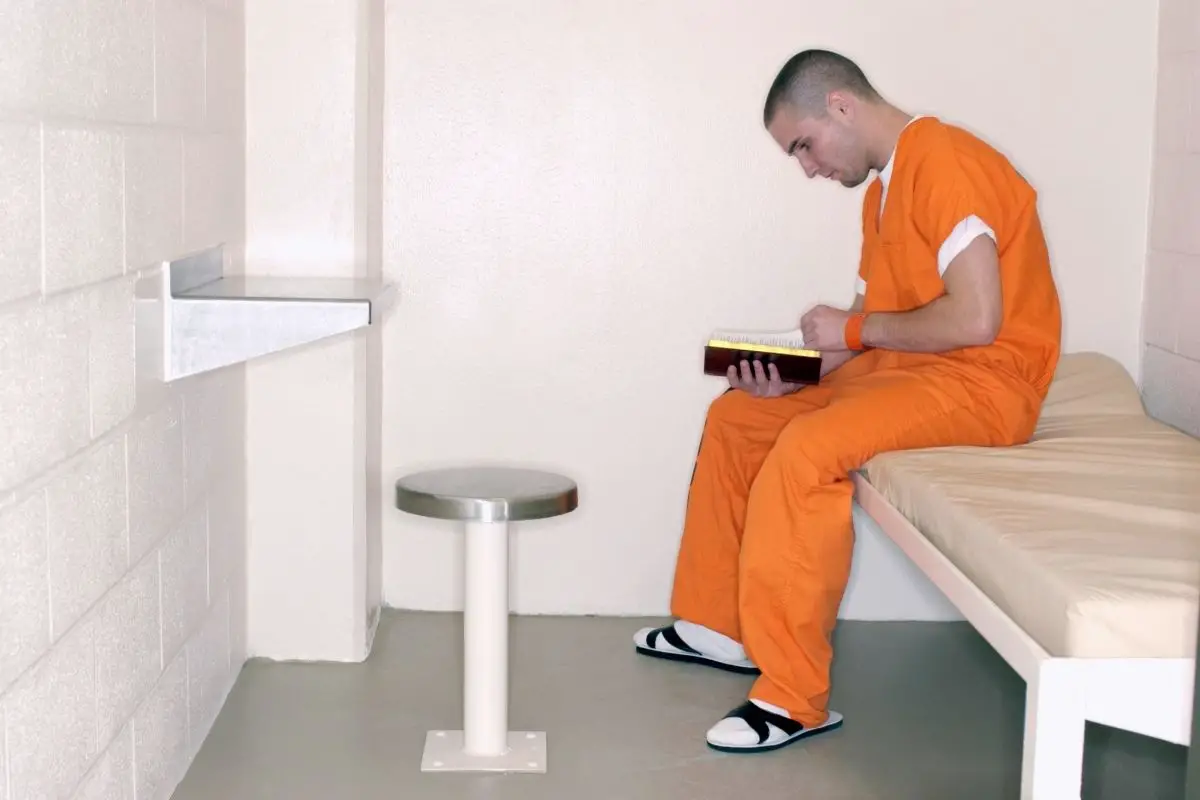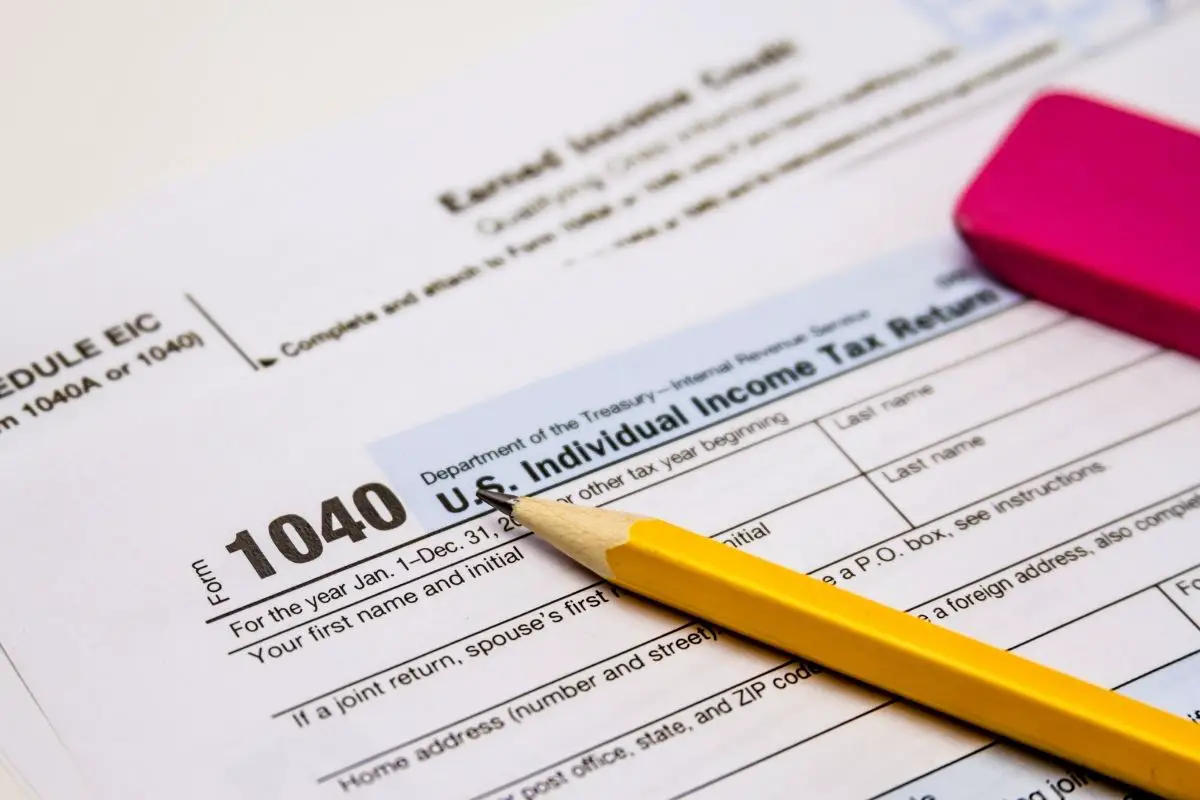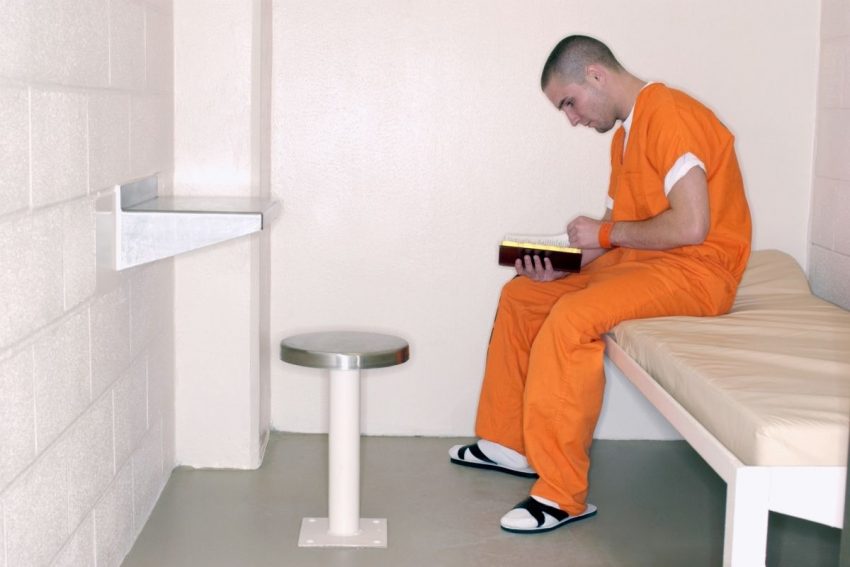We all know that taxes hit each and every single one of us all over the world.
How much you have to pay in taxes differs significantly from person to person, but there are some situations wherein you might question whether an individual actually needs to pay taxes.

One of these situations is if someone is a prison inmate. Do they need to pay taxes and if so, how do they go about it?
We are going to be covering this subject and looking a little deeper into this question in this article, so let’s get started.
Contents
Do Prison Inmates Have To File Taxes?
Yes, inmates file taxes much like any other citizen, so long as they earn enough money to do so. Inmates will sometimes earn income when they do work within the prison where they are incarcerated.
Some common prison jobs can include the following:
- Agriculture: This can include maintaining farming equipment, field work or raising livestock.
- Manufacturing: This can include making furniture, making signs, making license plates, processing food, sewing, working on metal fabrication or even rebuilding computers.
- Prison Support: This can include running laundry, cleaning, cooking, maintenance chores or undertaking clerical work.
As well as these jobs, inmates might also be employed through work releases. It is important to note that not all states pay their inmates for these jobs.
Instead, the work is considered to be beneficial experience that promotes a strong work ethic, as well as offering the chance to learn new and useful job skills.
It allows inmates to prepare themselves more thoroughly for employment when they are released back into society, but it also means that most prisoners will not have to pay taxes.
That being said, there will be some inmates that make enough money where tax payment will be required.
The Requirements To Pay Taxes As An Inmate
So what exactly are these requirements when it comes to paying taxes as an inmate? Well, they aren’t any different from what is required from people in the free world.
The major difference is that there is no chance of an inmate making that amount of money whilst they are in prison.
Let’s take a look at the usual gross income requirements to see just how much you have to make to fit these requirements.
Single Filing
- When under age 65, you need to make at least $12,550 a year.
- When aged 65 or older, you need to make at least $14,250 a year.
Married Filing
- If both spouses are under age 65, you need to make at least $25,100 a year jointly.
- If one spouse is under 65 and one is aged 65 or over, you need to make at least $26,450 a year jointly.
- If both spouses are aged 65 or over, you need to make at least $27,800 a year jointly.
Head Of Household Filing
- If under age 65, you need to make at least $18,800 a year
- If aged 65 and over, you need to make at least $20,500 a year
Qualifying Widow/Widower With Dependent Child
- If under age 65, you need to make at least $25,100 a year
- If aged 65 and over, you need to make at least $26,450 a year

As you can see, these requirements are not going to be met with the wages that an inmate will receive with a prison job.
However, there are those who would have held down a paying job before their imprisonment, as well as those who are married whose spouses have a reportable income that needs to be filed jointly.
If this is the case, it is possible to do so, even if it can become a huge hassle in terms of logistics.
Most facilities will allow visitors to bring in the necessary legal forms for the right signatures, or you can work alongside the inmate’s assigned caseworker to do so.
Filing Taxes For A Loved One Who Is An Inmate
Whilst we are on the topic of incarcerated spouses, let’s take a quick look at some unique tax rules surrounding loved ones that you might need to file taxes for.
Spousal Inmates
It is important to remember that any services or work performed by the inmate whilst incarcerated will not be considered earned income for Child Tax Credit or for Earned Income Tax Credit.
Despite this, payments earned are still considered taxable barter if the inmate is paid enough, even though they do not come under the category of “earned income” from a technical perspective.
Dependent Child Inmate
In this situation, the child of the taxpayer must meet certain criteria, such as relationship, residency, and age, in order to be claimed as a dependent in general.
A child that fits these requirements will need to have resided with the taxpayer for over six months, but any temporary absences for certain special circumstances are allowed.
This would include incarceration within a juvenile facility. All of the circumstances and facts will need to be determined in order to see if this absence qualifies as “temporary”.
When it comes to the relationship that the child has with the taxpayer, they must be one of the following:
- Daughter
- Son
- Step Daughter
- Step Son
- Eligible Foster Child
- Sister
- Brother
- Stepsister
- Stepbrother
- A Descendant of An Individual as Such
Final Thoughts
Tax payments for inmates is an incredibly complex and tricky situation to get your head around, even more so than taxes in general!
If you have any queries for yourself or for a loved one, make sure to make an appointment with an accountant or a tax specialist so that you can hammer out all of the necessary details with the help of a qualified professional.





